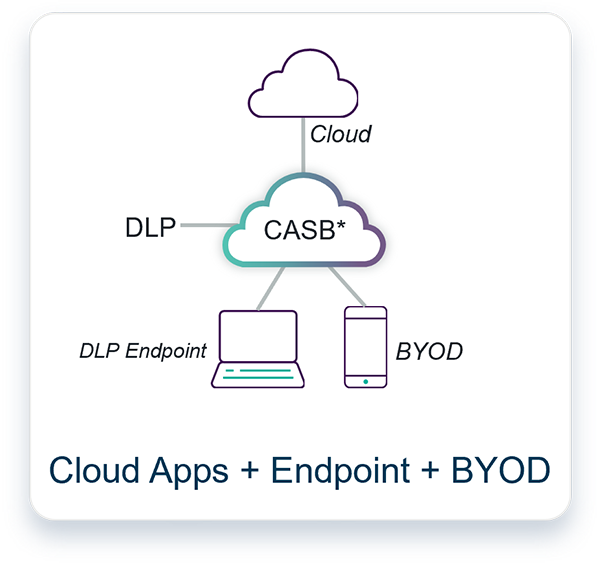
WEB PAGE

Today data is everywhere – on our laptops, phones, tablets and in the cloud. And with the acceleration of cloud adoption due to distributed workforces, more and more data is being stored outside of the traditional corporate network. This presents a new challenge for businesses: How to ensure that their data is secure, no matter where it is.

WEB PAGE
The traditional approach to digital security has been to focus on securing the perimeter using technology like firewalls and intrusion prevention systems to keep unauthorized users out. Typically, only large enterprises even attempted to implement Data Loss Prevention (DLP) technology at scale, and even here it‘s often typically focused on endpoint DLP. The problem? This approach is no longer enough.
With the rise of cloud apps, data is no longer confined to the corporate network. In fact, more and more organizations are taking a cloud-first approach: storing and using data primarily in cloud apps – even going so far as to prevent downloading onto laptops. Business data is also being accessed from personal devices, such as laptops and smartphones. This means that there are many more potential points where sensitive data could leave the organization.
This is why it is so important to have consistent data security controls across all these different avenues that data can traverse. If you take a piecemeal approach, then you end up with inconsistency – different DLP engines across different channels (such as email, endpoint or in the cloud) can result in low efficacy and cause fragmented visibility and ineffective controls.
To effectively secure data in today’s environment, businesses need to take a unified approach to data security. This means going beyond just access security to using security solutions that can scan and consistently protect data across all devices, applications and cloud services. This approach also entails blocking inappropriate movement or sharing of sensitive data – not just raising the alarm after the sensitive data is gone.

Unifying data security across your endpoints and cloud apps enables you to:
If you are looking to improve your data security, check out this quick demo video showing the effect of a unified solution for securing sensitive data across managed endpoints and cloud apps and see what Forcepoint can do for you.

Corey Kiesewetter is Forcepoint’s Sr. Product Manager for cloud security products, with a focus on SASE and Zero Trust applications. Corey has been directly helping IT practitioners realize best practices in datacenter operations the past decade and holds a degree in...
Forcepoint is the leading user and data protection cybersecurity company, entrusted to safeguard organizations while driving digital transformation and growth. Our solutions adapt in real-time to how people interact with data, providing secure access while enabling employees to create value.